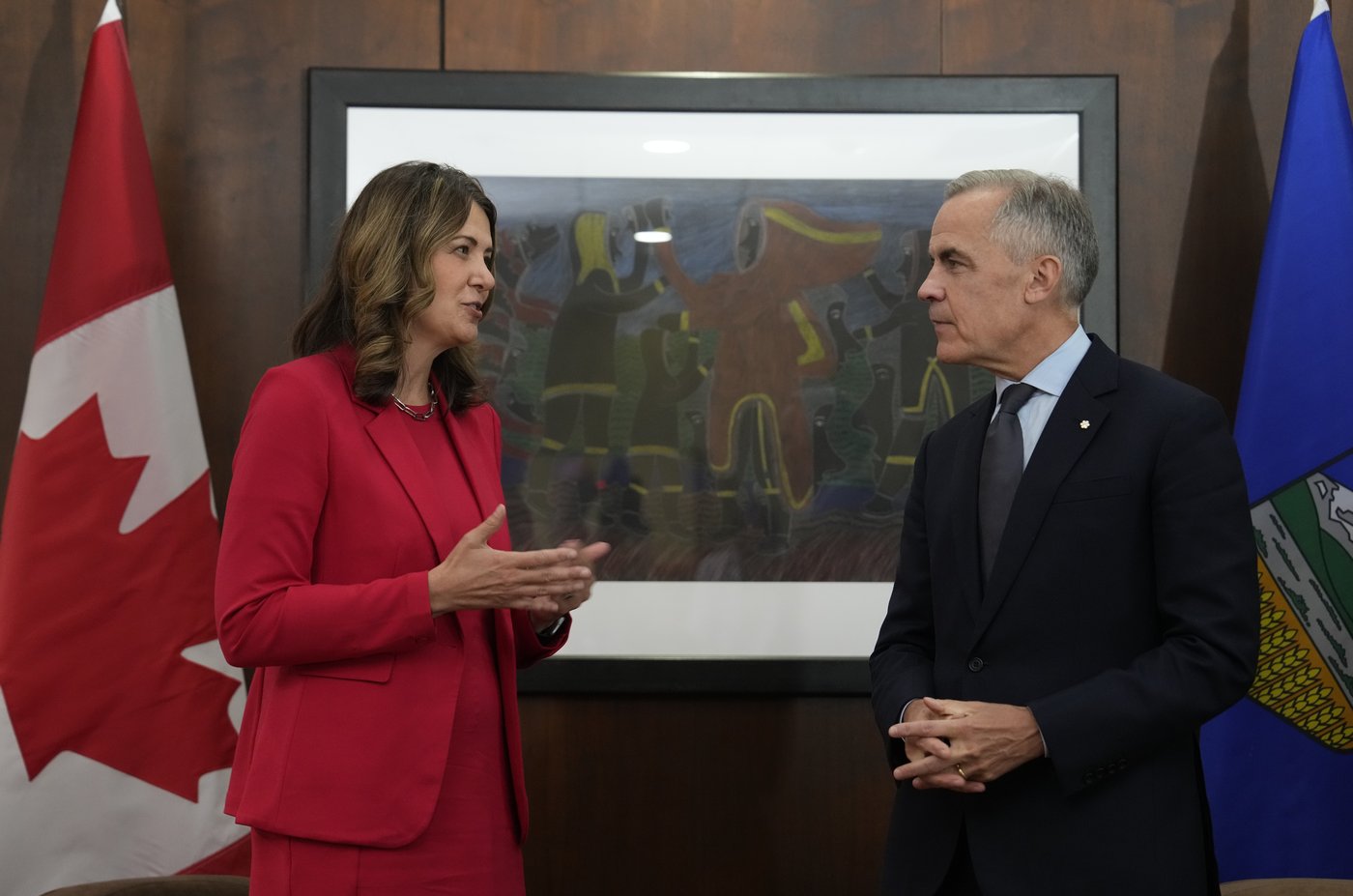Elevate your local knowledge
Sign up for the iNFOnews newsletter today!
[byline]

CALGARY — Alberta and Ottawa are said to be closing in on a “grand bargain” that could see a new West Coast oilsands pipeline built in tandem with emissions-offsetting measures, but it’s unclear it would be enough to incent private industry to invest in such a project.
Federal insiders have told The Globe and Mail that the easing of a B.C. north coast tanker ban, strengthened industrial carbon pricing to bolster carbon capture economics and forgoing a planned emissions cap are on the table.
They and provincial officials told the newspaper they’re hoping to announce a memorandum of understanding before the end of the month.
“The MOU will go a long way to demonstrating that the federal government and the prime minister are serious about being an energy superpower and getting our products to market and tackling some of our economic and productivity challenges,” said Adam Legge, president of the Business Council of Alberta.
“But they can’t necessarily just rely or coast on a successful MOU.”
He said Ottawa will have to “move with a pretty good pace” on actually making those policy changes in order for the private sector to have the confidence it needs to invest. Between measures in the budget earlier this month and the moves reportedly being considered in the MOU, Legge said his group’s concerns around oil and gas investment have largely been addressed.
Former pipeline executive Dennis McConaghy said he was pleasantly surprised by what the energy accord could reportedly include, but he still has reservations.
“The devil is in the details and there will still be a lot of questions about how do we trust a Liberal government,” said McConaghy, who led development of the original Keystone pipeline to the U.S. and worked on the early stages of the defunct cross-Canada Energy East proposal while at Trans Canada Corp., now TC Energy Corp.
“I’m still skeptical they get to the finish line.”
The Alberta government has announced plans to spearhead a proposal for an Alberta-to-B.C. pipeline that could carry up to a million barrels of oilsands crude per day for export to Asian markets. It aims to fund early work on preparing an application to Ottawa’s new Major Projects Office in the spring for a speedy review, with the goal of derisking it enough to hand it off to the private sector.
It’s been described as Northern Gateway 2.0, referring to an Enbridge Inc. project to Kitimat, B.C., that was nixed by the federal government a decade ago after protracted legal battles and intense environmental and First Nations opposition.
Premier Danielle Smith has said the province is stepping in because no private sector player is willing to invest in a project as long as the tanker ban and several federal environmental policies remain in play.
McConaghy said an industry-led pipeline will only go ahead if oilsands producers are willing to ramp up production enough to fill it.
“They will only do that if they think there’s a fundamental ability to trust the federal government that the kind of energy and climate policy it faces is not going to be at odds with actually producing another million barrels,” he said.
The federal industrial carbon price can’t be so high that new oilsands developments aren’t viable, McConaghy added, but it must be high enough to make the economics of the Pathways Alliance carbon capture project in Alberta work.
Pathways would capture emissions from the oilsands and store them underground so they don’t enter the atmosphere. Its partners have not made a final investment decision and federal and provincial support remains a question mark for the $16.5-billion project.
Prime Minister Mark Carney and Alberta Premier Danielle Smith have said an oil pipeline could be approved in conjunction with Pathways as part of a “grand bargain.”
Janetta McKenzie, director of the oil and gas program at the Pembina Institute, said talk of bolstering the industrial carbon price is encouraging, but she wants more detail.
“There’s still a lot that’s very nebulous about this pipeline — exactly where it’s going, who is involved in deciding the route, who has been consulted and how are these emissions impacts going to be squared,” she said.
A recent analysis by the clean energy think tank found a new West Coast oilsands pipeline would enable more emissions than Pathways would offset.
“That really underpins the need for strong industrial carbon pricing, which can incentivize emissions reductions beyond Pathways,” McKenzie said, adding the carbon price would need to become more stringent over time.
Liz McDowell, senior campaigns director at Stand.Earth, said opposition to an oil export pipeline through B.C. will make protests against contentious projects like Northern Gateway, the Trans Mountain expansion and the defunct Keystone XL expansion “look like a kid’s birthday party.”
McDowell added that Carney has “undone a decade of climate progress” within months, dragging Canada back to where it was when Stephen Harper was prime minister.
“While other countries are making unprecedented leaps in renewable energy production, Canada’s stuck in the past — and we’re going to get left behind,” she said.
A significant boost in oilsands production to fill a big new pipeline might not be in the cards no matter what concessions Ottawa makes, said University of Calgary economist Kent Fellows, noting that global oil markets have not fully recovered from the massive crash a decade ago.
“There’s only so much we can do domestically to get a bigger share of that global pie,” he said.
“I think some people watching from outside maybe think that it’s possible just to snap our fingers and return to those glory days of pre-2014, and it’s not.”
This report by The Canadian Press was first published Nov. 19, 2025.
Want to share your thoughts, add context, or connect with others in your community?
You must be logged in to post a comment.